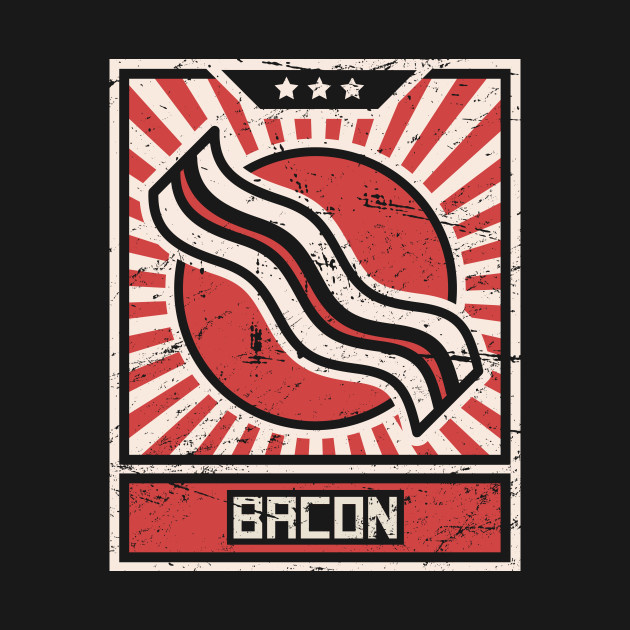Agenda based science, is still junk science, regardless as to whether you agree with the results or don’t agree. Up to 44% of your calories, coming from carbohydrates, is not considered low carb in any universe, except for a bunch of cardiologists with agendas:
Low carb diet tied to Atrial Fibrillation
“three groups representing low, moderate and high carbohydrate intake, reflecting diets in which carbohydrates comprised less than 44.8 percent of daily calories, 44.8 to 52.4 percent of calories, and more than 52.4 percent of calories, respectively.”
This seems strange to me: the low carb group can have anywhere fro 0-44.8 (why 44.8)% of its calories from carbs, a spread of 44.8%. The spread for the moderate protein group is only 7.6% and the spread for the high carb group is 47.6%. They can have up to 100% of their calories from carbs in that group.
The groupings seem suspicious to me. I would like to know why they chose those perecentages for the different groups. In fact, the moderate protein group doesn’t even match what they say is suggested by the dietary guidelines which is 45 to 65%.

Excellent thread on Twitter today on gaming media to promote agenda-driven data dissemination. John, below, was “triggered” by the whole “Keto Crotch” non-sense. But he does well to demonstrate how the strings of the media marionette are manipulated.
Started keto 12/3/18 and have not had a single bout of breakthrough afib since. I used to have 2-3 episodes a week. I saw the cardiologist in Feb and he said to come back in August if I still had no episodes and we would start taking me off my arrhythmia meds.
They must have released this due to keto crotch failing miserably. They’re waging war, and science is going to win.
Sigh. Science is a process, not an army. There are powerful interests gaming whatever they can, with government and media in particular. We all hear when our family and friends pass off this tripe as, “Oh, the experts are saying…” We need to calmly, and pleasantly, counter this. Our only hope is to rattle our pitchforks, the “vox populi.” As Prof. Noakes, and Dr. Berry have both recently observed, thanks to social media, we’re able to get a countervailing PoV out there.
It’s not enough to embrace the bacon. We must herald the bacon.
Phew! That’s enough agitprop for one morning.
I’m sure this article is quoting the same skewed study mentioned above. But here’s some food for thought…
How are they going to explain away how low carb diets are linked to increased risk of heart conditions when heart disease is currently (and has been) the #1 cause of death in the US with low fat and high carb nutritional guidelines? You don’t need a scientific study to see that the way people have been eating for the past 40 years has let obesity become the new normal.
What bothers me most is that people will read these headlines based on agenda driven false claims and dismiss keto as a fad when it is literally saving peoples lives.
Reminded me of the study a few years ago that concluded eggs were bad for you.
Unless you were between the ages of 55 and 64.
I guess something miraculous happens at 55 and only lasts 10 years? 
From the story:
Zhuang will present the study, “U-shaped Relationship Between Carbohydrate Intake Proportion and Incident Atrial Fibrillation,” on Saturday, March 16, at 10:00 a.m. CT in Poster Hall, Hall F.
A search of pubmed and google scholar for this study found nothing suggesting this is unpublished and therefore impossible to review or critque in a meaningful way. But a google search for the study turned up countless stories about this study with scary headlines…
I think the biggest problem here, as pointed out above, is that we can’t read the paper. The source isn’t a typical abstracted news source, so it seems to give more details than the usual sensational ones designed for the general public, but we still can’t see enough information.
That said, it’s not necessarily agenda driven or particularly flawed. It’s good to keep in mind, in all directions, that even without overt biases we should expect a variety of studies, papers, even meta-analysis to fall on either side of a particular topic, for various reasons.
This does go both ways: one study showing keto is the miracle diet is not itself a strong enough basis for a general conclusion, neither is one showing it’s deadly. 10 on either side aren’t necessarily all that significant, they’re just better than 1. If we can, we should try to see what each says, though we can be honest with ourselves that most of us don’t really have that much time and ability to go through every study and paper published on this or related topics, so there’s always a possibility something is missing.
Just was reading this below…
While eating huge bowl of pork rinds
Topped w 4 tbsp of melted butter
And lots of Parmesan cheese😂
Yummy😍
Then jumped on the forum
Came across this thread
Thanks OP
New research links low-carb diets like Keto and Atkins with AFib and lower life expectancy. Here’s why many heart doctors also don’t recommend going low-carb
Oops
Sorry
Also mentioned above
Here’s a link to a study which I believe is behing the how to eat carbs article. They won’t even show the abstract, but it seems possible to request the full text.
First of all, can we all poke fun at this photo for the article. I mean how many servings of freaking bread is in front of them and look at the model’s face: do not even think about putting that in my mouth, this is a stupid shoot, when do I get paid? And the guy, They said laugh and feed her a waffle, ha ha ha ha ha a hahaha.
Also this paragraph really says it all:
A 2018 Chapel Hill study also found that women with low-carb intake were 30% more likely to have babies with birth defects, likely because they weren’t getting enough folic acid, which has been added to enriched grain products. Women in the low-carb category got less than half the folic acid as the women who didn’t restrict their carbs.
…or she could take a prenatal vitamin and eat leafy green vegetables, both healthier than enriched grain products. They’re comparing non pregnant women in a study to pregnant woman walking around in the world who, no matter what they ate, would be addressing this very well known and preventable risk.
This poster is a presentation of a reanalysis of data from the ARIC (Atherosclerosis Risk in Communities) study. While ARIC data have already been published in peer-reviewed studies, the paper describing this re-analysis is still in the review process, though it is favorable to the mainstream advice and so is likely to be published eventually. Meanwhile, the damage will already have been done.
Some thoughts: Firstly, they divided the participants into terciles, suggesting that either the food questionnaires used in ARIC did not provide much detailed information about carbohydrate consumption by the participants, or else no association turned up when participants were more finely divided.
Terciles, quartiles, quintiles, etc., are derived, by the way, by ranking the population in order of their amount of a given characteristic (education level, age, income, product consumption, etc.) and dividing the population into equal-sized groups. It often happens that people on the border of each level have to be randomly assigned to one group or the other. If the distribution is skewed, you can end up with a significant number of people at the same level of the characteristic in different groups.
So, for example, if you were to take 900 people and divide them into terciles by number of jars of peanut butter consumed per day, Tercile III might contain a few weirdos who ate 3 jars a day, but Terciles I & II will both contain only people whose consumption will be something like 0.025. So n-tiles (the formation is derived from “percentile”) are useful only in cases where the distribution curve and the means and the modes for each level are known and thoroughly understood. The number of people in each division also needs to be large enough for statistically valid inferences to be drawn about their other characteristics.
[ETA: An example of a case where dividing a population into n-tiles would be extremely useless is the case of a population of 100 third-graders being divided into percentiles by education level. In such a (bogus) case, each percentile would contain a population of one, and all percentiles would have the same level of education! But such inappropriate parsings of data do happen, unless someone steps in to prevent it.]
Zoë Harcombe analyzed one recent “study” where the terciles contained something like 2,345, 6,789, and 7,890 people, respectively (obviously, these numbers are made up, but the real distribution was wonked like that). Those are not actually terciles, those numbers are the result of someone’s trying to prove a point. It will be very interesting to read Ms. Harcombe’s eventual critique of this ARIC reanalysis. 
ETA: inert here the usual statements about food frequency questionnaires, p-values above 0.001, and association being nothing like causality, the known confounders, etc.
P.P.S.—Thanks, Tom, for posting the link to the ACC press release. This is going to be fun.
Yes! Studies that confirm our biases aren’t necessarily more sound than those that refute them.
This is a keto clarity observation.
They can’t help making the point in the article, because their brains are all loaded up with carbs.



